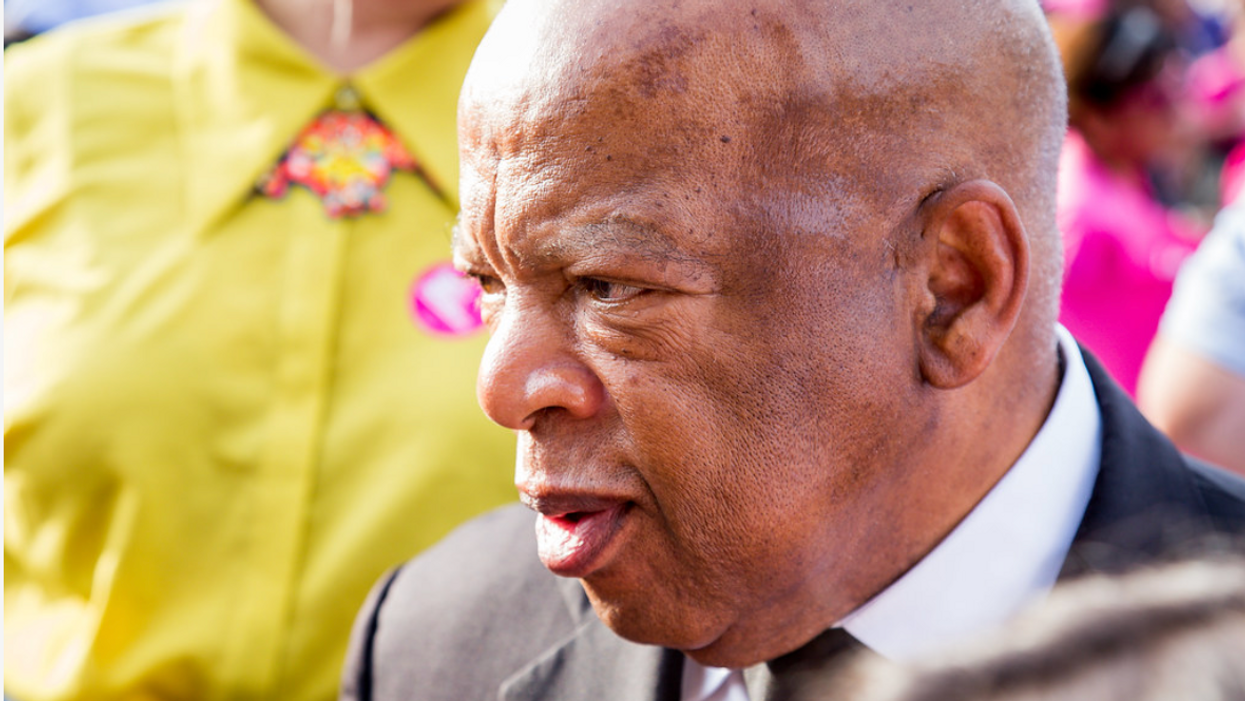House Democrats: You Can’t Preserve The Filibuster And Protect Voting Rights
Reprinted with permission from Daily Kos
The Congressional Black Caucus (CBC) is concerned about the lack of movement of any kind in the Senate on H.R. 1, the sweeping elections reform bill. They're preparing a more narrow strategy in hopes of getting quick action: sending the John Lewis Voting Rights Advancement Act to President Joe Biden's desk by September. They believe a bill named for their colleague and hero, the late John Lewis, has a better chance with a Senate that is deadlocked 50-50 and is being held hostage by Mitch McConnell, with the help of Democrats Joe Manchin and Kyrsten Sinema.
The urgency is real. States are starting the process of congressional redistricting, and without a law which restores the key sections of the 1965 Voting Rights Act gutted by the Supreme Court, there will be no curb on states drawing discriminatory districts. The Supreme Court struck down the VRA's pre-clearance formula in 2013, a requirement that certain states and localities with histories of racially discriminatory voting practices—including drawing of electoral maps—had to get pre-approval from the U.S. Department of Justice to make changes to the voting process.
"If you want to play into [Republican] hands, you do nothing at all and let them pass redistricting maps that absolutely don't have to be pre-cleared where they can do whatever the hell they please, and they can discriminate at will. Or, you step up your game and you do what needs to be done," said Rep. Marc Veasey, a Texas Democrat, of the effort to get this bill passed. "If you don't pass" this voting rights bill, he said, "you're basically giving them a green light to just go ahead and discriminate against Black and Hispanic voters."
"I certainly think our focus ought to be on [the Lewis bill] and voting rights," said Rep. Anthony Brown of Maryland, a member of the CBC. "You would think that that would provide a real good opportunity for a handful of Democratic senators who want to hold onto the filibuster [to say] 'Yes, we can do it on this John Lewis Voting Rights [Act].'"
You would think that, and this could be the bill that puts the necessary pressure on the filibuster holdouts in the Democratic conference in the Senate—for their own job security, if nothing else. As of March 24, 361 state bills to restrict voting have been introduced in 47 states, according to the Brennan Center for Justice, which has been keeping track. They are not slowing down, either. "That's 108 more than the 253 restrictive bills tallied as of February 19, 2021—a 43 percent increase in little more than a month. Forty-seven states is almost all of them, including the ones that have Democratic senators. Their majority in the Senate only exists because of Vice President Kamala Harris. It could be gone very easily in January 2023 if states have free rein on keeping Democratic voters out of voting booths.
The House Judiciary Committee is responding, with its Subcommittee on the Constitution, Civil Rights, and Civil Liberties holding a hearing Thursday to discuss the need to restore the VRA. "Congress cannot continue to let these challenges to the VRA go unanswered," Judiciary chairman Rep. Jerry Nadler said during the hearing. Nadler isn't a member of the subcommittee; he crashed the hearing, perhaps in order to emphasize how serious he is about moving this legislation forward. Former Housing and Urban Development Secretary Julián Castro testified Thursday.
"In my home state of Texas today there is an all-out assault on the right to vote. For generations,
Texas has been a testing ground for devious ways to restrict access to the polls," Castro said. "Since the Shelby decision in 2013, the state has cut more polling locations than any state in the nation. Texas enacted a strict voter ID law that permits firearm licenses to be used to vote, but prohibits the use of student IDs. And lawmakers have used things like voter registration deadlines, restricted voting hours, and limitations on early voting to chip away at the franchise of millions of people."
He reminded the committee that "Congress knew in each of the four times they reauthorized the VRA that we must protect the rights of voters and reaffirm the American principle of anti-discrimination." Since 2013, however, Senate Republicans have prevented restoration of the VRA, looking ahead to this moment—the 2020 census and their chance to gerrymander Democrats out of power and suppress enough Democratic voters in perpetuity to have a permanent stranglehold on government. It's why they packed the courts with Trump judges.
Castro had a message for lawmakers in his testimony, directed particularly at those in the Senate who put their so-called principles about a bipartisan Senate over the "timeless truth" of our democratic system. "[T]his timeless truth: the right to vote shouldn't depend on the color of one's skin, how much money one has, or what state one lives in."
"It's a right guaranteed to every eligible American citizen. It's the cornerstone of our democracy. And it's what the late Representative John Lewis—for whom the new Voting Rights Act is named—described in his final letter as 'the most powerful nonviolent change agent you have in a democratic society.'"












